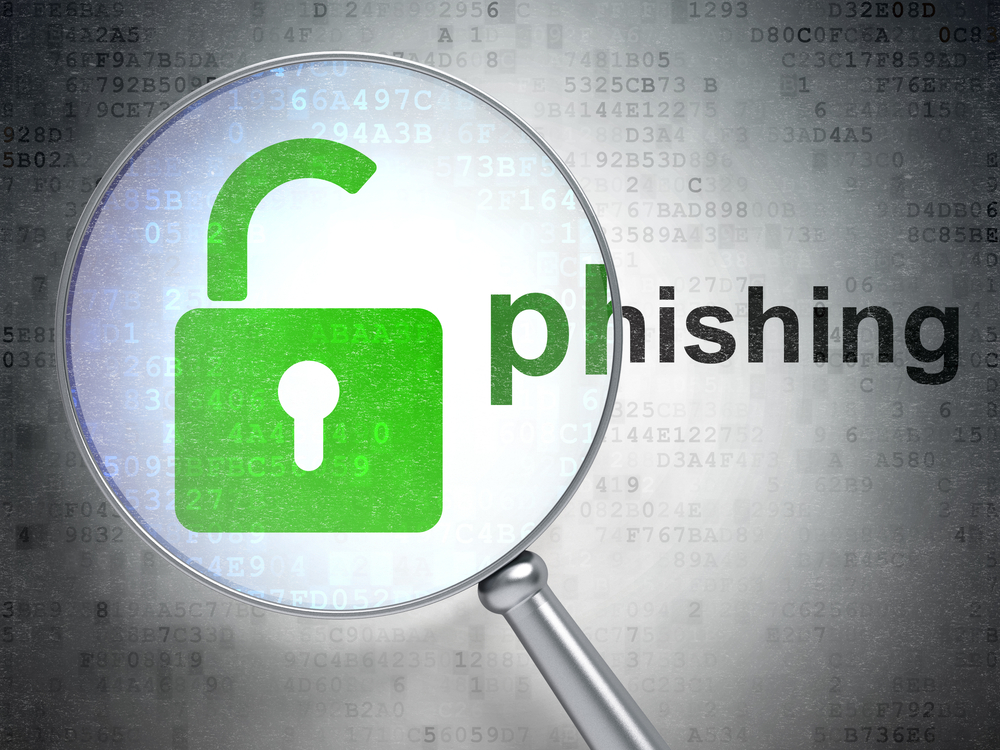
How real live phishing emails can help protect users [Q&A]
Phishing remains one of the most popular attack vectors for cybercriminals. But traditional defenses relying on filtering or raising user awareness via training aren't always effective.
We spoke to Lior Kohavi, chief technology officer at enterprise SaaS security specialist Cyren to discover how a new approach is using genuine attacks to help both educate users and keep phishing emails out of our inboxes.

Roll up, roll up! Spot a scam to win a prize!
Cybersecurity is one of the biggest challenges for small and medium-sized businesses and employees are often the weakest link when it comes to preventing data breaches.
In order to improve awareness of phishing scams -- and hopefully stop people falling for them -- ESET is launching an interactive phishing derby to allow people to test their scam-spotting skills and get the chance to win real prizes.

Companies face more than 1,000 domain impersonations each year
Businesses are facing a wave of attacks using domains impersonating their company and brand names according to a new study.
The research from risk protection specialist Digital Shadows shows that in the last four months its clients experienced an average of 360 domain impersonations, amounting to over 1,100 per year.

Without training one in three users fall for phishing scams
New research finds that, if they haven't received security awareness training, one in three users will likely fall for a phishing or social engineering scam that could put their organization at risk.
The study from awareness training specialist KnowBe4 set out to measure organizations' phish-prone percentage (PPP) and found an initial baseline of 31.4 percent across all industries and sizes.

Manufacturing and healthcare among top targets for phishing attacks
A new report from cloud email and collaboration specialist Avanan shows healthcare and manufacturing as two of the top industries being targeted by hackers in the first half of the year.
The most attacked industries are IT, healthcare, and manufacturing. IT saw over 9,000 phishing emails in a one month span, out of an average of 376,914 total emails. Healthcare saw over 6,000 phishing emails out of an average of 451,792 total emails and manufacturing saw just under 6,000 phishing emails out of an average of 331,184 total emails.

Three-quarters of IT leaders think organizations are more vulnerable to mobile attacks
A survey of over 600 IT decision makers across the US, UK and Australia finds that 76 percent believe end users are more at risk from attacks on mobile devices than they were a year ago.
The study from Menlo Security also shows 53 percent admit that it's not possible to be prepared for all the tactics and strategies used by attackers targeting mobile devices. And, more than a third (38 percent) claim that it's impossible to keep up with the pace of these attacks.

Why the human factor is key to cybersecurity [Q&A]
There are many things to consider when it comes to making systems secure, but one thing that is often overlooked is the human angle.
George Finney, CISO, CEO and founder of Well Aware Security believes that cybersecurity is a people problem first and foremost -- people are the ones who write and employ processes and people are the ones who create and use technology. No surprise then that people are behind some 95 percent of cybersecurity incidents.

COVID-19 leads to a year of cybersecurity challenges
Over the past 12 months, the COVID-19 pandemic has created the perfect environment for cybercrime to flourish, according to Verizon's 2021 Data Breach Investigations Report.
The report analyzed 29,207 quality incidents, of which 5,258 were confirmed breaches. With large numbers of people working remotely, phishing attacks increased by 11 percent, while attacks using ransomware rose by six percent.

Security training has little effect on reducing human error
Traditional techniques such as security awareness training and phishing simulations have a limited impact on improving employees' real-world cybersecurity practices according to a new report.
The study, prepared by the Cyentia Institute, uses aggregated data from 114,000 Elevate Security Platform users for the last three years, examining malware, phishing, email security and other real world attack data.

Tackling the social engineering bonanza caused by the Microsoft Exchange hack [Q&A]
In early March, Microsoft disclosed that Chinese hackers had exploited software vulnerabilities in Microsoft Exchange on-premises servers to gain access to the email accounts of thousands of Microsoft customers.
While these companies are now laser-focused on deploying patches and other security measures to remediate the vulnerabilities in their email software, Josh Douglas, VP of product management -- threat intelligence at Mimecast, believes these technical fixes will only go so far.

When phishing phails to phool
Phishing attacks are getting more sophisticated and therefore harder to spot. However, there are still times when the phisherfolk don't do themselves any favors, making their attempts at deception amusingly obvious.
Email security company GreatHorn has launched a new blog series called Phishing Phails which looks at some of the less successful examples of phishing bait.

Credential phishing on the rise with Office 365 a top target
New research from Menlo Security reveals that numbers of fake login pages and forms looking to steal credential are on the increase.
The majority of attacks are serving Outlook and Office 365 logins, reflecting the widespread use of these services across corporate environments.

Three billion spoofed emails sent each day
A new report looking at trends in DMARC adoption shows that while take up of the identity verification technology is increasing, three billion messages per day are still spoofing the sender's identity.
The study from Valimail shows that email remains a favourite attack route, implicated in over 90 percent of all cyberattacks with the pandemic providing a new focus.

Return to offices means new opportunities for phishing
The move to home working provided new opportunities for phisherfolk, but as many people start to return to their offices the attackers are pivoting to exploit that too.
A new report from email phishing protection specialist INKY shows attacks are capitalizing on vulnerability and the desire for accurate information about returning to the office in-person.

Cybercriminals keen to cash in on vaccine interest
The past few months have seen plenty of news surrounding COVID-19 vaccines, from the buzz surrounding roll outs to fears of possible side effects.
As always with a major news event cybercriminals seek to exploit the opportunity it presents. Cloud-native email security company GreatHorn has identified a new pattern of techniques being used to exploit the unease of vulnerable email users by spoofing critical vaccine information.
